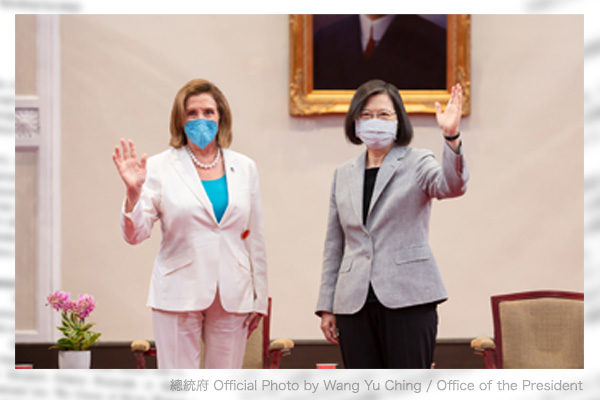On March 16, 2018, then U.S. President Donald Trump signed into law the Taiwan Travel Act after both the House and Senate passed it unanimously. Beijing had strongly urged the U.S. to repeal the bill, saying the enactment could cross a red line of the China-U.S. relations. Why did the act that was casually named by intention cause so much irritation to Beijing? Even before the enactment, U.S. legislators and businesspersons had frequently visited Taiwan. Their Taiwanese counterparts had made similar visits to the U.S.
The key point is that the act emphasized that the U.S. should “allow officials at all levels of the United States Government, including Cabinet-level national security officials, general officers and other executive branch officials, to travel to Taiwan to meet their Taiwanese counterparts.”
The act thus featured the promotion of direct talks between the U.S. defense secretary and military officers, including generals and admirals, and their Taiwanese counterparts.
The act also noted that the U.S. should “allow high-level officials of Taiwan to enter the United States, under conditions which demonstrate appropriate respect for the dignity of such officials, and to meet with officials of the United States, including officials from the Department of State and the Department of Defense.”
The U.S. act provided the legal ground for in-depth talks between U.S. and Taiwanese military officers on strategic and operational matters. The problem now is Japan’s posture.
Japan should lose no time in preparing for a contingency
Since China fired missiles into Japan’s exclusive economic zone in military drills right after U.S. House Speaker Nancy Pelosi’s visit to Taiwan in early August, the late former Japanese Prime Minister Shinzo Abe’s comment that a Taiwan contingency would amount to a Japan contingency and a Japan-U.S. alliance contingency has become all the more realistic. An urgent challenge is to organize trilateral strategic and operational talks involving Japanese, U.S. and Taiwanese defense officials with a Taiwan contingency in mind. But a Japan-Taiwan channel remains a missing link.
Japan should enact its own version of the Taiwan Travel Act. In fact, Taiwan has made a specific request for such legislation. On August 8, Taiwanese lawmaker Guo Guowen, who led a Taiwanese legislature delegation to Japan, proposed that Japan enact the Japanese version of the Taiwan Travel Act. The proposal came at his meeting with Keiji Furuya, a Lower House member from Japan’s ruling Liberal Democratic Party, who heads a supra-partisan Japan-Taiwan parliamentarians’ group. In an interview before his visit to Japan, Guo candidly said he felt some insecurity about future Taiwan-Japan relations after Abe’s death. A stable legal framework that does not depend on personal power is required.
Lawmaker-initiated supra-partisan bill should be sought
The government may refrain from submitting such kind of bill or water down the content even if it submits a bill. The best way is for like-minded members of the Diet to propose a lawmaker-initiated supra-partisan bill.
In the U.S., the Taiwan Travel Act was proposed by Steve Chabot in the House and Marco Rubio in the Senate who is a leading critic of China. Chabot has deep knowledge about the issue of North Korea’s abduction of Japanese citizens and has known Furuya, who now heads a parliamentary league on the North Korean abduction issue and has visited the U.S. almost every year to exchange views with Chabot and other people involved. Japanese, U.S. and Taiwanese politicians may further deepen partnership in the process of enacting and implementing the Japanese-version Taiwan Travel Act.
Yoichi Shimada is a senior fellow and Planning Committee Member, Japan Institute for National Fundamentals, and a professor at Fukui Prefectural University. He follows domestic politics and foreign relations of the United States.


